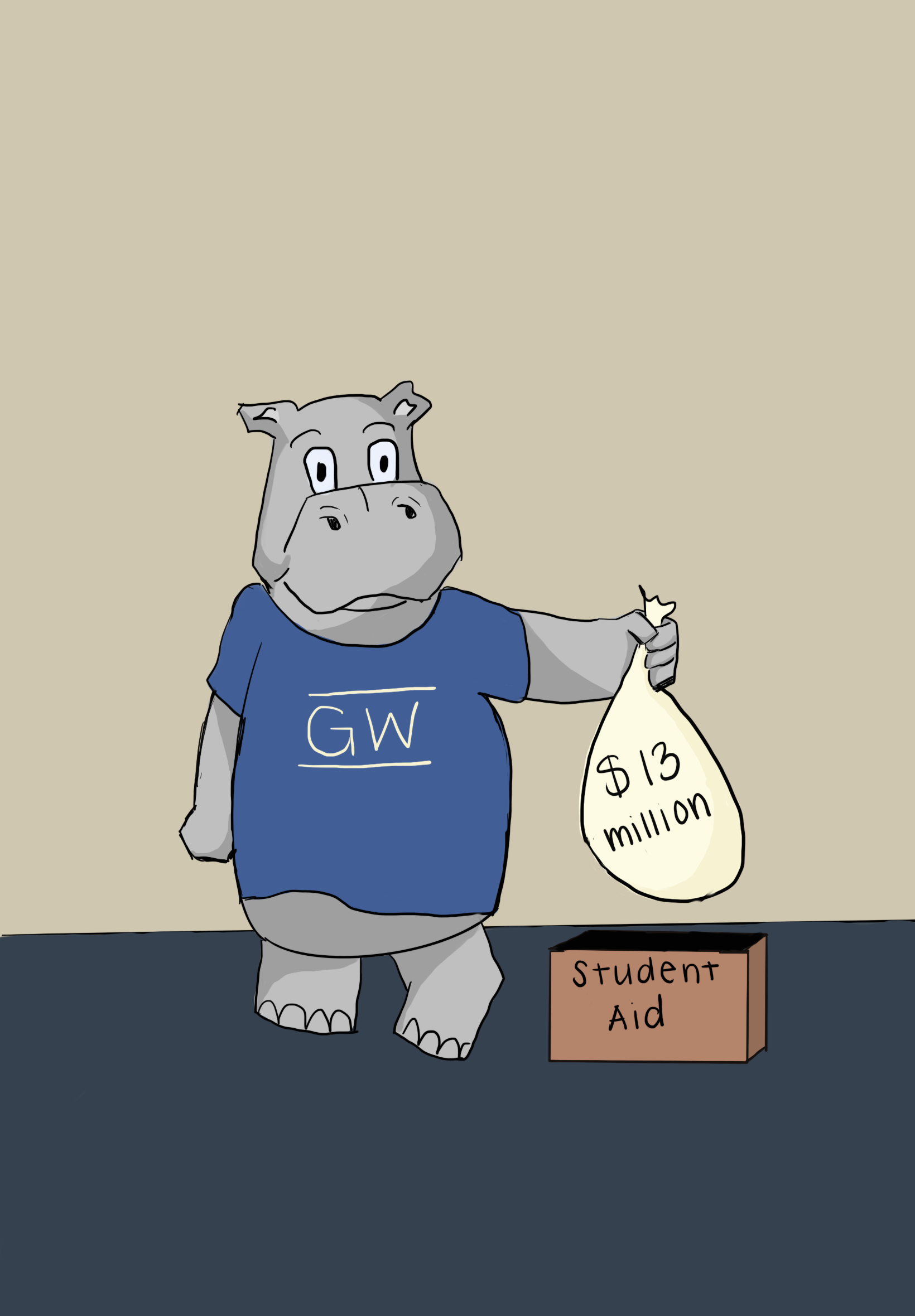The University has $13 million in COVID-19 relief funding to dole out. That money should be put toward helping students and staff.
GW has needed to lay off employees, institute hiring freezes and cut certain department budgets. On top of that, students and their families have been hit hard by the pandemic, so much so that officials ran out of money to give quickly after their first load of pandemic relief came in. When the University distributes its COVID-19 relief money, officials should prioritize distributing the funds to students because they are the core of this University, and students need to be able to pay tuition. After that, the money needs to go toward ending hiring freezes and rehiring staff that were let go at the start of the pandemic.

Hannah Thacker | Opinions Editor
Students are dealing with unprecedented times. Many students have lost monetary prospects like Federal Work Study or are in need of more income for their family and personal expenses. Jobs are scarce and dangerous during this pandemic. Students with demonstrated need should not need to put themselves in the line of fire when the University has the means to assist them. Last time the University received funding, students had to demonstrate need in order to get funding. The same criteria should be applied this time. All students who need extra support should be able to access assistance from the University.
On top of all of the students who need more aid this semester, there is another group of students on campus who might need more help: undocumented students. Last time, undocumented immigrants and students were left out of federal relief. While it looks as if they will be included this time around, should the tides turn and they be left out once again, the University should prioritize undocumented students who are receiving no federal relief.
Once students are taken care of, the GW community would be well-served by the University trying to undo many of the pandemic-era cuts it made to faculty and staff. These cuts meant that many employees, starting with events staff back in the spring, wound up jobless just as the virus spread and the economy cratered.
The hiring freeze has also meant fewer adjunct professors – which, according to department chairs, has led to fewer course offerings for students. Students’ learning experiences, already weighed down by the virtual environment and pandemic stress, have been pulled down even lower by having fewer courses available. This has been even more pronounced in the humanities, like English and anthropology, that had been in the crosshairs for cuts even before the pandemic. Putting some of the COVID-19 aid toward thawing the hiring freeze could help fix that problem.
This funding could also present a great opportunity to enact the proposed “cluster hiring” plan that officials and faculty have been discussing. The proposal, aimed at diversifying GW’s White-dominated professoriat, calls for onboarding 18 new faculty members of color and expanding the University’s Africana studies program. Officials, while seeming to support the plan in principle, have cautioned that it would be difficult to enact in the pandemic environment. Still, it is worth considering as an option right now rather than later on if GW is able to put some pandemic relief aid toward hiring.
Obviously, the editorial board is not the entity that makes these decisions, and we are not at all privy to the full range of factors that the University has to weigh when allocating resources. Nevertheless, it is worthwhile to articulate some of the different needs the University has and different places this funding could go. The University is only as strong as the students who learn there and the faculty and staff who work there – so making sure they benefit first and foremost is paramount.
The editorial board is composed of Hatchet staff members and operates separately from the newsroom. This week’s piece was written by opinions editor Hannah Thacker and contributing opinions editor Andrew Sugrue, based on discussions with managing director Kiran Hoeffner-Shah, managing editor Parth Kotak, sports editor Emily Maise, culture editor Anna Boone and design editor Olivia Columbus.
Want to respond to this piece? Submit a letter to the editor.


